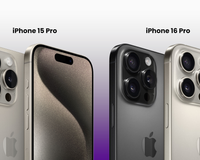We've all been there: whether you've just done an upgrade to the latest model or simply stumbled across a pile of random devices in a drawer, you wonder if it's really worth selling an old mobile phone. The prospect of some extra cash is always appealing, but the hassle of trying to get a good deal? Not so much. And if you suspect that old phone isn't worth much, well, it's tempting to not bother even looking.
But unless you're planning on starting a museum dedicated to every Samsung or iPhone you've ever owned, there are good reasons to sell your used mobile phones – regardless of the price you'll get for them.
Here's why..

What else are you going to do with an old device?
Unless you really are creating a Ye Olde Mobile Phone museum, what are you going to do with that phone? One thing you shouldn't do, under any circumstances, is send it to landfill.
Why? Because it is baaaaaad for the environment. Like, really bad.
According to researchers at Columbia Climate School, electronic items such as mobile phones contain a range of hazardous chemicals and toxic metals including lead, mercury, cadmium, beryllium, PVC plastic and brominated flame retardants. You don't have to remember much from GCSE Chemistry to know that does not sound good.
Wondering what harm one device could possibly do? A single phone battery could contaminate 60,000 litres of water because of the amount of chemicals it contains. That's the equivalent of more than 17,000 mugs of tea.
Furthermore, 1,378 million mobile phones were sold in 2020. Even if only a fraction of those were replacements, that still leaves a whole lot of old phones that could end up in landfill if they aren't sold on. It's a big problem.

The epic problem of e-waste
If you've hung round with us here at reboxed for more than five minutes, you'll have heard us banging on about the issue of e-waste.
E-waste: a definition
E-waste (electronic waste) describes discarded electrical or electronic devices.
It's a global problem of epic proportions. The latest report from the UN found that in 2015, the world generated 9.2 mega-tonnes of e-waste – a figure that had risen to 53.6 mega-tonnes by 2019. The UN also predicts that this rapid growth will continue, estimating 74.7 mega-tonnes per annum by 2030 and 111 mega-tonnes per annum by 2050.
Here in the UK, we make an outsize contribution to this problem. Although the global average for generating e-waste is 7.3 kg per person, the average for a European is 16.2 kg. Norway tops the list, followed by the UK.
As the ones shouldering a lot of responsibility for the e-waste pandemic, the onus is also on us to step up and dispose tackle the problem.
How? By making sure that we recycle electronic items such as mobile phones responsibly. And the best to do that is to sell your phone to a reputable company that specialises in mobile phone refurbishment and recycling.
What happens when I sell my phone?
Good question. There are a few possibilities.
If the type of mobile you're selling is a fairly recent Samsung or Apple iPhone in good condition, it will probably get resold. There are plenty of customers out there who don't need the latest device, so it makes sense for them to buy an older phone model and save a bit of money in the process.
If you sell your phone and it has a bit of damage, where that's cracked glass, a faulty microphone jack or dud battery, it will probably get refurbished by a specialist manufacturers. Sometimes this involves a small cosmetic improvement, sometimes it means a total overhaul. Whichever it is, these companies know what they're doing and can give a new lease of life to all but the most neglected old phone.
That said, if it's an old mobile phone that really can't be returned to better condition, mobile phone recyclers still might give you some cash for it. It's all because of the materials used to make mobile phones. There are a range of valuable materials contained within an iPhone, Samsung or any other make of mobile – enough to make some decent money for anyone who can extract them.
These elements include copper, palladium, lithium, cobalt and others that we're more likely to associate with jewellery than a phone, such as gold, silver and platinum. And you definitely don't need to remember much of GCSE Chemistry to know that these materials command seriously high prices. In 2019, the estimated value of raw materials in e-waste such as phones was $57 billion.
As well as fetching high prices, these elements are easier to access in a mobile phone than in the ground. The US Environmental Protection Agency, for example, states that “One metric ton of circuit boards can contain 40 to 800 times the amount of gold and 30 to 40 times the amount of copper mined from one metric ton of ore in the United States.”

Responsible phone recycling
While the prospect of making some cash from the precious materials in your phone is tempting, it's highly dangerous because of the toxic materials that also make up our technology. Specialist manufacturers, on the other hand, are able to both extract valuable elements and recycle the less valuable components correctly – and safely.
Unfortunately, the boom in mobile phone sales over the last decade combined with insufficient legislation to deal with the escalating levels of e-waste means that less than 20% is recycled correctly. All too often, an old phone sold in the UK, Europe or the US gets shipped to Africa or southeast Asia for disposal. There, recyclers in informal workshops will dismantle the phones and recover the precious materials – thereby making money but at great risk to their health and the environment around them.
The Columbia Climate School, for instance, reports "Research has found that inhaling toxic chemicals and direct contact with hazardous e-waste materials (even in some formal e-waste recycling settings) result in increases in spontaneous abortions, stillbirths, premature births, reduced birth weights, mutations, congenital malformations, abnormal thyroid function, increased lead levels in blood, decreased lung function, and neurobehavioral disturbances. Moreover, e-waste toxins contaminate the air, soil and groundwater."
These findings make the message clear: when you sell your phone, the price that a company offers you for that old mobile isn't the only consideration. You also need to ensure that you deal with a reputable company that you can trust to recycle the phone in a responsible way. Fortunately, we've just made that much easier for you.

Why sell your mobile phone to reboxed?
We know that "Sell my phone" is not top of anyone's list of fun. We also know that "Sell my phone" moves even further down that list when people realise what minefield phone recycling can be in terms of safety and sustainability.
But at reboxed, we’ve done our best to simplify this problem. We put trust and sustainability at the top of our list of importance, to save you from the hassle of shopping around.
Rehoming phones is integral to what we do, in fact it’s all we do - so it’s kinda important that we’re really good at it. It’s embedded in our circular business model - rebox, rehome, repeat - which is our take on the circular economy. This model means that no phone goes unloved (or into landfills), but rather refurbished to go to a new owner or recycled through one of our trusted partners.
We take our commitment to sustainability a step further by planting trees for every phone rehomed to offset the devices lifetime CO2 emissions.
No matter how bruised or battered your phone may be from those forgettable nights out post-lockdown, we guarantee to take care of it and do our best to give it a new life - rewarding your pocket and our planet.
Wanna know how much your phone is worth or looking to save on that morning coffee? Go to sell.reboxed.co or download our app TechCheck. Take the 60 second diagnostic test, choose between pick up or drop off and get paid in 24 hours!
It's really that easy.

![The Best iPhones for battery life ranked [2025]](http://reboxed.co/cdn/shop/articles/IPHONE-BATTERY_e2de6230-b1d2-4348-ac33-e47d1e267bdd_100x80_crop_center@2x.jpg?v=1738489925)






